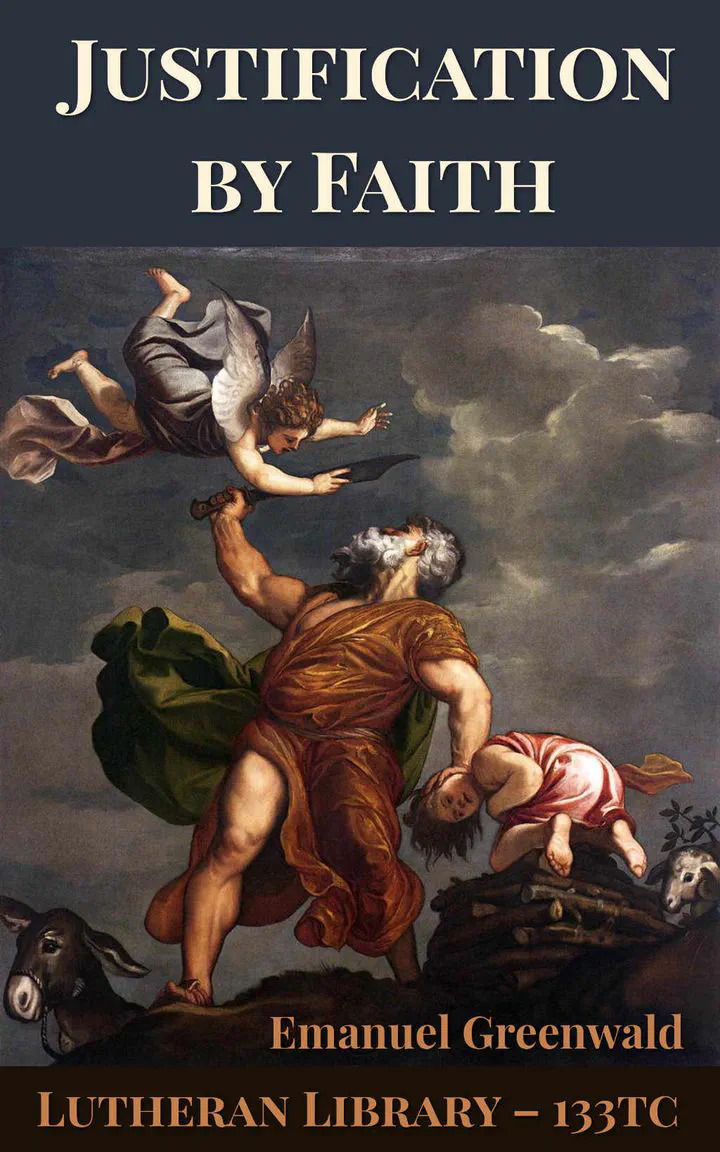Justification by Faith by Emanuel Greenwald

The old battles in the church are here again. Perhaps the most important one is not about spiritual gifts for today, but rather what constitutes salvation. Is it all Jesus Christ? Or is it Jesus Christ plus our obedience?
Modern Evangelicals like Paul Washer1, John Piper2, and perhaps even John MacArthur3 seem to suggest that works you do are required for being right with God. If they truly believe that justification requires anything more than faith in Christ’s atonement, then according to Luther and the other reformers, they are mistaken.
Free PDF download from the Lutheran Library
Pastor Emanuel Greenwald writes:
The doctrine of Justification by Faith in the atonement for sin effected for us by the obedience unto death of our Lord Jesus Christ, distinguishes Christianity from all other religions in the world.
And the doctrine of Justification by Faith alone, was the turning point of the Reformation… and as it distinguished the Lutheran Church from the Church of Rome, so it has come to be regarded as the distinguishing mark of separation between Protestantism and Romanism.
The short piece Justification by Faith by Emanuel Greenwald explains clearly the consequences of getting justification subtly wrong. Why not download it now and read it this weekend? It’s available for free from The Lutheran Library Publishing Ministry.
No Christian doctrine is more important than this.
About Dr. Greenwald (From the Lutheran Cyclopedia)
Emanuel Greenwald was born near Frederick, Maryland, Jan. 13, 1811. Dr. Greenwald’s first parish was New Philadelphia, Ohio, and all the adjoining country within a radius of fifteen miles in every direction. At one time he supplied fourteen preaching points on Sundays and week-days. In 1842 he was elected as the first editor of the Lutheran Standard, and from 1848 to 1850 he was the president of the English District Synod of Ohio.
The years 1851 to 1854 were spent in the city of Columbus, during which time he held many responsible positions on important boards, committees, etc. In September, 1854, he accepted a call to the pastorate of Christ Church, Easton, Penn., which he faithfully served for twelve years. His fourth and last parish was Holy Trinity Church of Lancaster, Penn., in which he labored from May, 1867, up to his death in December, 1885. Long after his own generation will his memory continue to be revered as an ideal pastor and a man of pre-eminent saintliness. C. L. F.4
Excerpt
Man may err, but God can never err. We are directed to go “to the law and to the testimony, and if we speak not according to this Word, there is no life in us.” Neither is it man’s Bible, but God’s Bible. The force of a plain passage of God’s Word is sought to be evaded by the flippant reply, “Yes, so it reads in your Bible” as if we had made the Bible. No, it is God’s Word, and not man’s word, and we have it in our hands, just as Christ spoke it, and the apostles wrote it, and the old primitive Church read it, and all Christendom, from that time to this, believed and practiced it. – Emanuel Greenwald. “The True Church”
“…Washer’s belief that justification and sanctification are the same thing. He absolutely does believe that we keep ourselves saved through the process of “mortification and vivification.” While constantly pontificating about easy-believe-ism, he himself is in danger of being condemned for teaching a false gospel.” source ↩︎
Just one recent example http://thewartburgwatch.com/2017/10/16/sola-pipera-john-piper-says-sola-fide-doesnt-cut-it-and-then-seems-to-cook-the-books/ ↩︎
This has been discussed in many places over many years. See for example http://www.trinityfoundation.org/journal.php?id=193 ↩︎
Jacobs, Henry Eyster, ed. (1899) The Lutheran Cyclopedia. New York: Charles Scribner’s Sons ↩︎